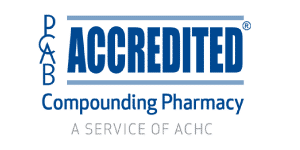What is a compounding pharmacy?
As a patient, you may have heard the term “compounding pharmacy” but may not fully understand what it entails. A compounding pharmacy is a specialized pharmacy that creates customized medications tailored to meet the unique needs of individual patients. Unlike traditional pharmacies, which dispense commercially available medications, compounding pharmacies have the ability to formulate medications from scratch, using specific ingredients and dosages to suit the patient’s requirements.
Compounding pharmacies have been in existence for centuries, and their services have become increasingly important in modern healthcare. These pharmacies play a crucial role in providing patients with personalized medications that are not available commercially. This is particularly beneficial for patients who have allergies or sensitivities to certain ingredients, require specific dosage forms, or need medications that have been discontinued by pharmaceutical manufacturers.
The role of compounding pharmacies in healthcare
Compounding pharmacies fill a vital gap in healthcare by providing medications that are not readily available from traditional pharmacies. They work closely with healthcare professionals, including physicians, veterinarians, and dentists, to create customized medications that are tailored to the unique needs of each patient. This collaboration ensures that patients receive the most appropriate treatment options, taking into consideration their medical history, allergies, and other relevant factors.
In addition to creating customized medications, compounding pharmacies also offer various services, such as flavoring medications for pediatric patients, compounding hormone replacement therapies, preparing sterile medications for injections, and creating medications in dosage forms that are not commercially available, such as creams, gels, or suppositories. These services allow healthcare providers to offer a wider range of treatment options to their patients, enhancing the overall quality of care.
Benefits of customized medication
Customized medications, prepared by compounding pharmacies, offer several benefits over commercially available medications. Firstly, they allow for personalized dosing, ensuring that patients receive the exact amount of medication they need. This is particularly important for individuals who require medications in specific strengths or have unique dosage requirements.
Secondly, compounded medications can be formulated to exclude certain ingredients that patients may be allergic to or sensitive to. For example, if a patient is allergic to a specific dye used in commercially available medications, a compounding pharmacy can create a dye-free alternative.
Furthermore, compounding pharmacies can combine multiple medications into a single dosage form, making it more convenient for patients who need to take multiple medications. This reduces the number of pills or doses that need to be taken, making medication management easier and improving patient adherence.
Common conditions treated with compounded medications
Compounded medications can be used to treat a wide range of medical conditions. Some common conditions that can benefit from customized medications include:
- Pain Management: Compounded medications can be formulated to provide targeted pain relief for conditions such as arthritis, neuropathy, and musculoskeletal injuries. These medications can be applied topically or administered through injections, allowing for localized pain relief.
- Hormone Replacement Therapy: Compounding pharmacies specialize in hormone replacement therapies, which are commonly used to alleviate symptoms of menopause, such as hot flashes, mood swings, and sleep disturbances. Compounded hormones can be customized to match the individual’s hormone levels, ensuring optimal effectiveness.
- Dermatological Conditions: Compounded medications are frequently used to treat various skin conditions, including acne, eczema, psoriasis, and fungal infections. These medications can be prepared in the form of creams, ointments, or gels, containing specific active ingredients to address the patient’s unique needs.
- Veterinary Medicine: Compounding pharmacies also play a crucial role in veterinary medicine. They can create customized medications for pets, considering factors such as the animal’s size, species, and specific health condition. This allows veterinarians to provide tailored treatment options for their furry patients.
Common conditions treated with compounded medications
Compounded medications can be used to treat a wide range of medical conditions. Some common conditions that can benefit from customized medications include:
- Prescription Evaluation: The compounding pharmacist reviews the prescription provided by the healthcare professional, along with any specific instructions or requirements.
- Ingredient Selection: The pharmacist selects the appropriate active pharmaceutical ingredients (APIs) and other necessary ingredients based on the prescription and the patient’s needs.
- Compounding: The pharmacist combines the selected ingredients in the required proportions and follows specific compounding techniques to create the customized medication. This may involve techniques such as mixing, grinding, heating, or dissolving the ingredients.
- Quality Control: The compounded medication undergoes rigorous quality control measures, including testing for potency, sterility (if applicable), and overall quality. This ensures that the final product meets the required standards.
- Packaging and Labeling: The medication is packaged and labeled with all the necessary information, including the patient’s name, dosage instructions, and any relevant warnings or precautions.
- Patient Counseling: The compounding pharmacist provides detailed counseling to the patient, explaining how to properly use the medication, potential side effects, and any other relevant information.
Common conditions treated with compounded medications
To ensure the safety and quality of compounded medications, compounding pharmacies must adhere to strict regulations and safety standards. In the United States, compounding pharmacies are regulated by both federal and state authorities.
The U.S. Food and Drug Administration (FDA) provides guidelines and regulations for compounding pharmacies, particularly in relation to the ingredients used, the compounding process, and the labeling of compounded medications. These regulations aim to protect the health and safety of patients by ensuring that compounded medications are prepared in a controlled environment and meet specific quality standards.
In addition to federal regulations, compounding pharmacies must also comply with state regulations, which may vary from state to state. These regulations often require pharmacies to obtain specific licenses or permits, maintain proper documentation, and undergo regular inspections to ensure compliance with safety standards.
Finding a reputable compounding pharmacy
When choosing a compounding pharmacy, it is essential to select a reputable and reliable provider. Here are some factors to consider when evaluating compounding pharmacies:
- Accreditation: Look for pharmacies that are accredited by recognized organizations, such as the Pharmacy Compounding Accreditation Board (PCAB). Accreditation ensures that the pharmacy has met specific quality and safety standards.
- Professional Expertise: Consider the qualifications and experience of the compounding pharmacists. They should have specialized training in compounding techniques and be knowledgeable about the specific medications they are preparing.
- Quality Control Measures: Inquire about the pharmacy’s quality control processes. They should have robust quality control measures in place to ensure the safety and effectiveness of compounded medications.
- Communication and Collaboration: A reputable compounding pharmacy should have open lines of communication with healthcare professionals and be willing to collaborate closely with them to provide the best possible care for patients.
Common misconceptions about compounding pharmacies
Despite the numerous benefits and importance of compounding pharmacies, there are some common misconceptions surrounding their services. Let’s address a few of these misconceptions:
- Compounded Medications Are Unsafe: This is a widespread misconception. When prepared by a reputable compounding pharmacy that follows strict regulations and quality control measures, compounded medications are safe and effective.
- Compounded Medications Are Not FDA Approved: While it is true that compounded medications are not individually FDA approved, the ingredients used in compounding are FDA approved. Compounded medications are prepared by combining these FDA-approved ingredients as per the patient’s unique needs.
- Compounding Pharmacies Are Unregulated: As mentioned earlier, compounding pharmacies are regulated by both federal and state authorities. These regulations ensure that pharmacies meet specific safety and quality standards.
Frequently asked questions about customized medications
- Are compounded medications covered by insurance? Coverage for compounded medications may vary depending on the insurance provider and the specific policy. It is recommended to contact your insurance company to determine the coverage.
- Can compounded medications be shipped to my location? Many compounding pharmacies offer shipping services to ensure convenient access to customized medications. Check with the pharmacy regarding their shipping policies.
- Can compounded medications be returned or refunded? Due to the customized nature of compounded medications, they are generally not eligible for return or refund. It is essential to discuss any concerns or issues with the compounding pharmacy directly.1
Conclusion
Compounding pharmacies have revolutionized the way medications are prepared and tailored to meet the unique needs of individual patients. These specialized pharmacies play a crucial role in healthcare by providing customized medications that are not available commercially. By offering personalized dosing, excluding allergens, and creating unique dosage forms, compounding pharmacies enhance the overall quality of care and improve patient outcomes. When choosing a compounding pharmacy, ensure they are reputable, adhere to strict regulations, and prioritize patient safety. Start your journey towards customized medications today with Vios Compounding Pharmacy.
Start Your Order Today with Vios Compounding Pharmacy Today





